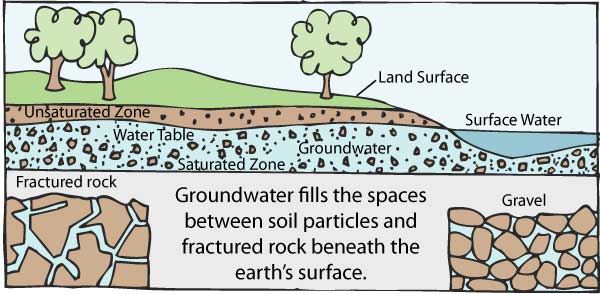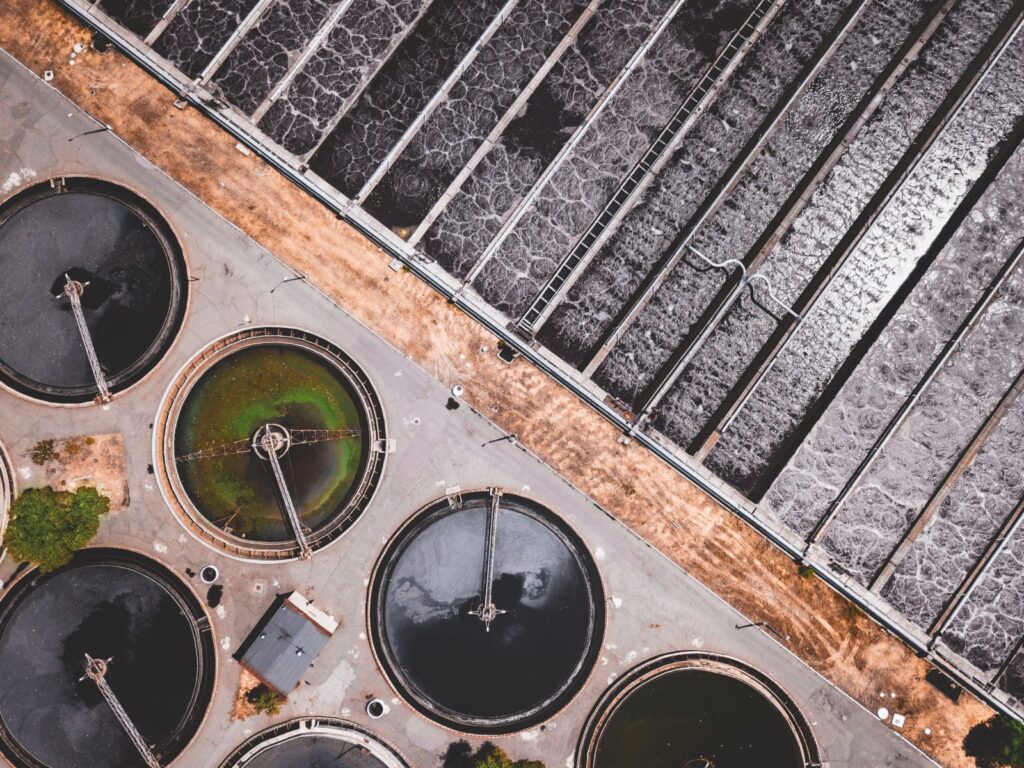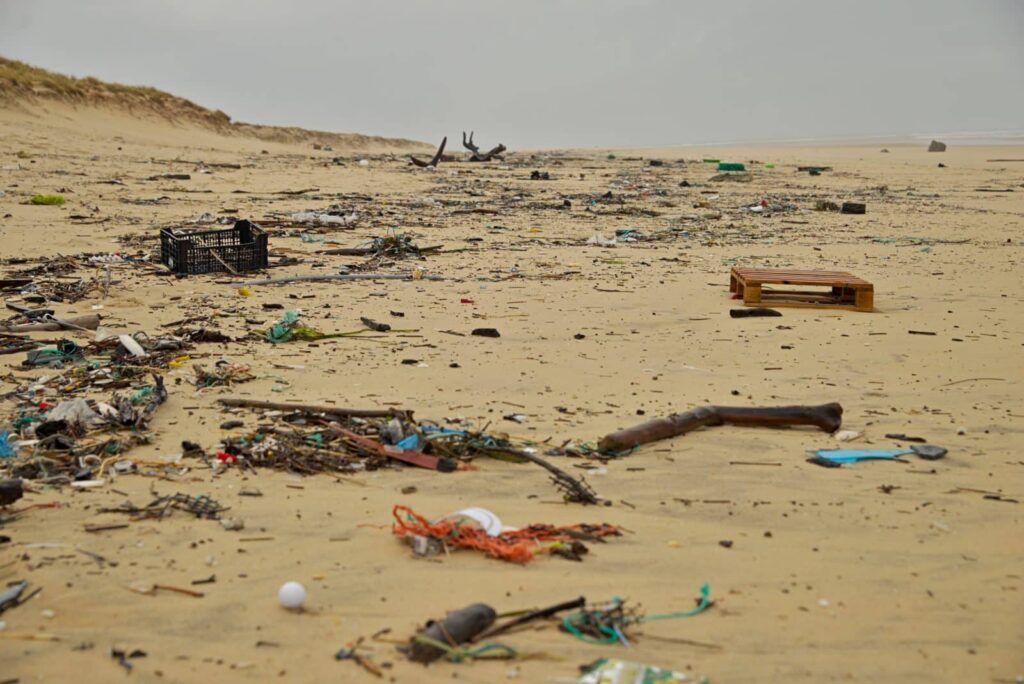Groundwater is water under the earth’s surface held in soil pores and cracks in the rocks.
Pollution of groundwater is a major problem that is affecting everyone. But unfortunately, little in authorities are doing little to manage water pollution.

Where does groundwater come from?

After precipitation (rain, snow, hail, sleet), the water seeps into the ground. Plants use up some water while some seep deep until it reaches a layer of rocks where they cannot seep further. The water then fills the cracks and empty spaces beneath, forming what is referred to as groundwater.
Why is groundwater significant?
- According to the US Geological Survey (USGS), 50% of US residents use groundwater for drinking and house chores.
- The biggest use of groundwater is crop irrigation.
Polluting groundwater directly affects humans, animals, crops, and the ecosystem.
So, how is groundwater polluted?
Groundwater is polluted in many ways. The type of pollution can be natural or caused by humans.
Here are some of the leading causes of groundwater pollution:
Natural pollution
Natural substances like arsenic, fluorides, chlorides, magnesium, iron, sulfates, and radionuclides pollute water. These natural substances dissolve in groundwater, affecting humans, plants, and animals. In addition, decaying organic matter also pollutes groundwater.
Septic tanks

Septic tanks hold toilet waste, detergents, chemicals, bacteria, and viruses. However, since most are built in the ground, they often leak, causing groundwater pollution.
Hazardous waste
Most hazardous wastes need proper disposal by experts. Things like garden chemicals, medicine, batteries, oil, and others should not be emptied into water sources. Often, these pollutants are disposed of in water sources that affect groundwater.
Landfill contamination

Some chemical containers are disposed of at landfill sites if the hazardous chemicals are washed by rainwater, which affects groundwater.
Herbicides, pesticides, and fertilizers
Farm chemicals often have toxic effects on water sources. For example, a study conducted by EPA between 1985 and 1992 found that over 3.6% of wells have nitrates concentrations higher than the recommended levels. The study also found pesticide presence in 14.6% of wells.
Here are the full statistics from the survey. Nitrates occur naturally in the ground, but fertilizers increase their levels significantly.
Mining

During mining, some harmful chemicals like cyanide are used. For example, cyanide separates gold from ore, and sulphuric acid is used in iron mining. The leakage of mining chemicals affects groundwater. It is similar to the Santa Cruz aquifer, which is filled with leached chemicals.
What are the effects of groundwater pollution?
Clean-up operation costs are huge. In addition, some water pollution is irreversible, which may result in the abandonment of the only watercourse available for some communities.
Contaminated water impacts estuaries and ecosystems. Contaminates like nitrogen cause irreversible damage in the habitats and affect plant life. Nitrate pollution causes enormous algae bloom, which blocks sunlight and affects oxygen levels in the water. The lack of oxygen suffocates fish and other water animals.
What is being done about groundwater pollution?
The government is enforcing some policies to protect water sources. While some laws look hell-bent on undoing them, they work quite well.
- The Resource Conservation and Recovery Act seeks to regulate waste disposal.
- The Safe Drinking Water Act (SDWA) regulates the underground injection of waste disposal and protects wells and acquirers.
- The Comprehensive Environmental Response, Compensation, and Liability Act ensures money is set aside for cleanup purposes on affected sites.
- The Insecticide, Fungicide, and Rodenticide Act and toxic control Act regulate pesticide use and manufactured chemicals.
Conclusion
If you suspect your water source is contaminated, you can use the whole home or reverse osmosis water filter to purify your water.

Jay
Jay is a health and wellness enthusiast with expertise in water quality and nutrition. As a knowledgeable advocate for holistic well-being, Jay successfully manages Type 2 Diabetes through informed lifestyle choices. Committed to sharing reliable and authoritative insights, Jay combines firsthand experience with a passion for enhancing health."
